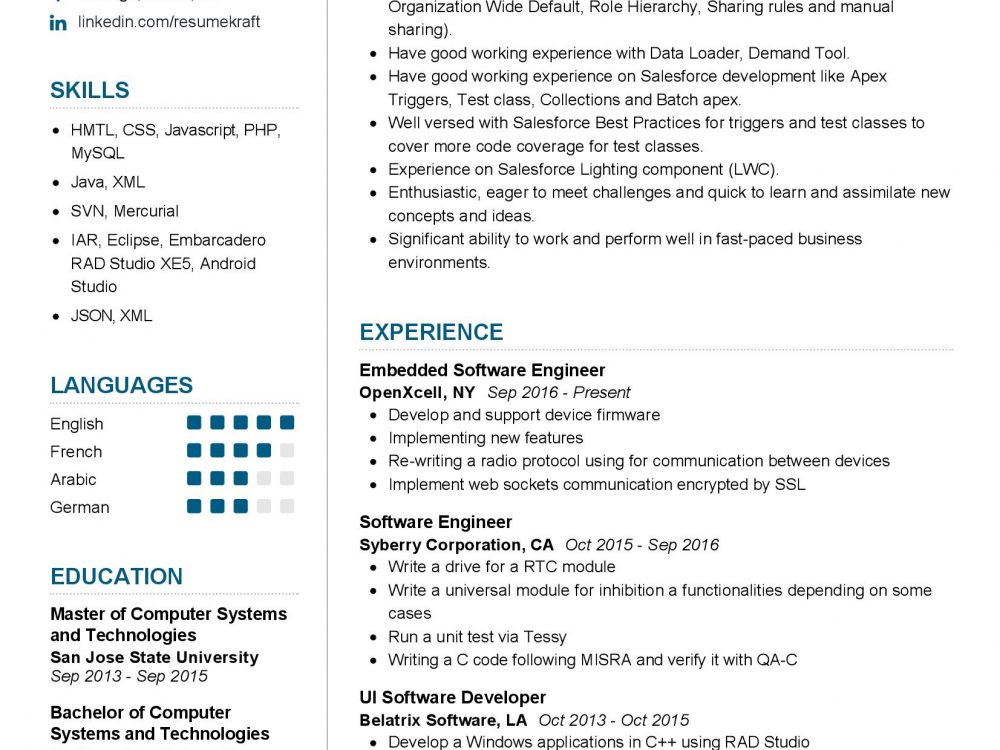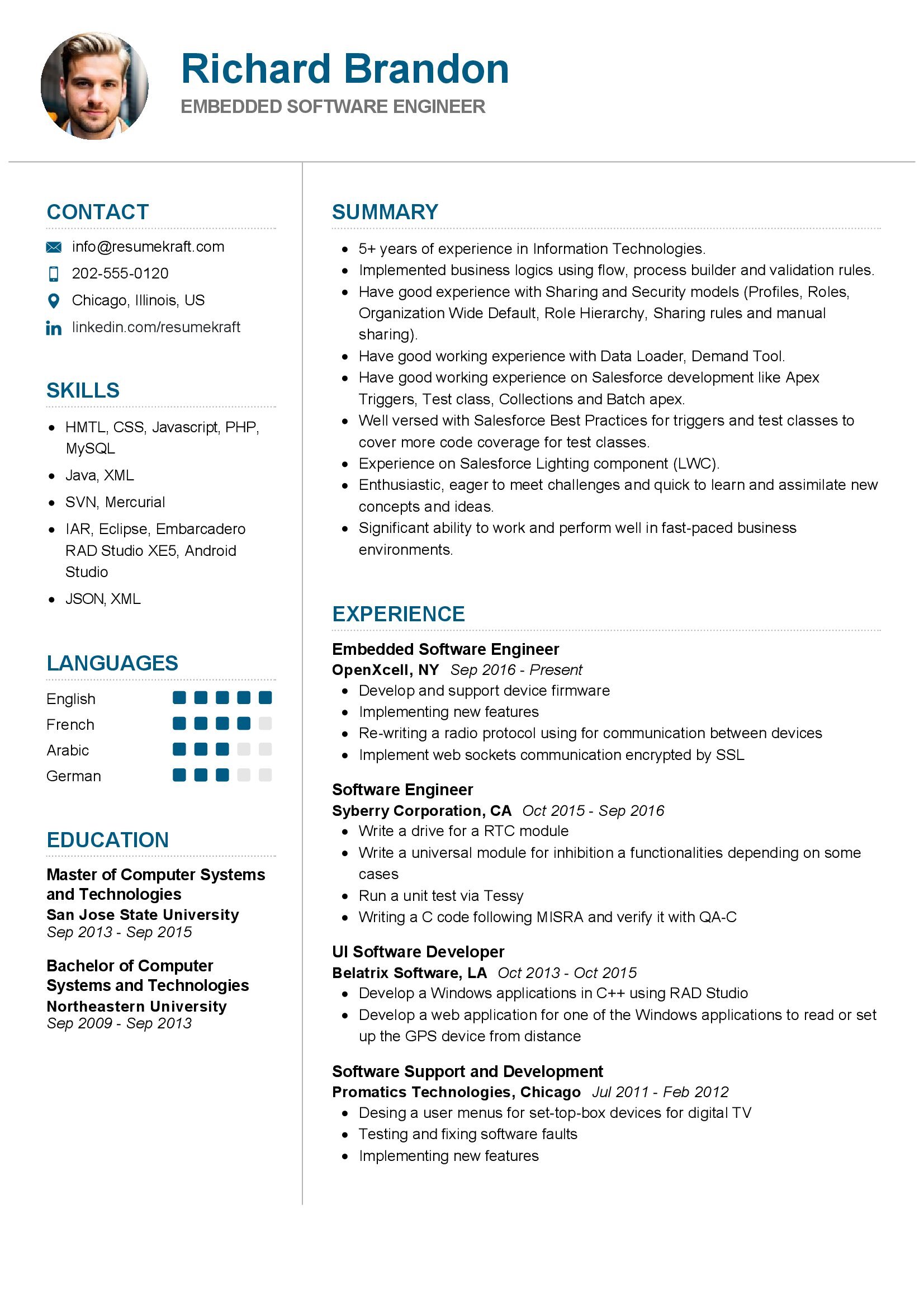Exploring the Role of an Embedded Software Engineer
In today’s fast-paced technological landscape, the role of an Embedded Software Engineer is both critical and dynamic. Embedded systems are at the heart of numerous devices we encounter daily, from smartphones to household appliances. Embedded Software Engineers play a crucial role in designing, developing, and maintaining the software that powers these devices. This article delves deep into the multifaceted role of an Embedded Software Engineer, highlighting the skills, responsibilities, and educational background required for success in this field.
Requirements for Becoming an Embedded Software Engineer
The path to becoming an Embedded Software Engineer is marked by a series of requirements and skills that are essential for excelling in this role. To embark on this journey, one needs to fulfill the following prerequisites:
- A Bachelor’s or Master’s degree in Computer Science, Electrical Engineering, or a related field, providing a solid foundation in the technical domain.
- Proficiency in programming languages such as C, C++, and assembly language, which are fundamental for embedded system development.
- Knowledge of microcontroller and microprocessor architecture, essential for understanding hardware-software interactions.
- Experience in software development, with a focus on real-time operating systems (RTOS) and embedded programming.
- Strong problem-solving skills, as debugging and optimizing code are integral parts of an Embedded Software Engineer’s role.
- Understanding of hardware design and electronic circuits, enabling effective collaboration with hardware engineers.
Obtaining certifications in relevant technologies, such as Embedded Systems or RTOS, can enhance your profile and make you a standout candidate in the competitive job market.
Roles and Responsibilities of an Embedded Software Engineer
The role of an Embedded Software Engineer is diverse, encompassing various responsibilities that contribute to the successful development and functioning of embedded systems. Here are the core responsibilities that define this role:
- Designing and developing embedded software for specific applications, ensuring optimal performance and efficiency.
- Collaborating with hardware engineers to define system requirements and hardware-software interfaces.
- Writing and debugging code for microcontrollers and microprocessors, with a focus on real-time and low-level programming.
- Testing and validating software to ensure it meets the required specifications and functions correctly in the target environment.
- Optimizing code for memory usage and processing speed, a crucial aspect of embedded system development.
- Implementing security measures to protect embedded systems from external threats and vulnerabilities.
- Documenting software designs, code, and test procedures for reference and future maintenance.
Each responsibility in this role presents its own set of challenges and learning opportunities, contributing to the growth and expertise of an Embedded Software Engineer.
Creating a Compelling Resume for an Embedded Software Engineer
Your resume is your ticket to securing a job as an Embedded Software Engineer. It should effectively communicate your qualifications and experiences to potential employers. Here are some tips to craft a resume that stands out:
- Highlight your experience with specific embedded systems or projects you have worked on, showcasing your hands-on skills.
- Detail your achievements, such as optimizing code for improved performance or solving complex software-hardware integration issues.
- Include quantifiable results, such as the percentage increase in system efficiency due to your optimizations.
- List any relevant certifications or training programs you have completed in the field of embedded systems.
- Customize your resume for each job application, emphasizing the skills and experiences that align with the specific job requirements.
Your resume is your opportunity to demonstrate your expertise and passion for embedded systems, so make it count.
Resume Summary Examples for an Embedded Software Engineer
Your resume summary is the first impression you make on potential employers. It should be concise yet impactful, highlighting your unique qualifications. Here are some examples to inspire you:
- “Experienced Embedded Software Engineer with a strong track record in real-time programming, adept at optimizing code for enhanced system performance.”
- “Passionate Embedded Software Engineer with a deep understanding of microcontroller architecture, known for solving complex software-hardware integration challenges.”
- “Results-driven Embedded Software Engineer with expertise in developing secure and efficient embedded systems, committed to delivering excellence.”
Your resume summary should encapsulate your skills and experiences, leaving a lasting impression on potential employers.
Building an Impressive Experience Section
The experience section of your resume is where you narrate your journey as an Embedded Software Engineer, showcasing your milestones and achievements. Here are some examples to guide you:
- “Led a team in the development of embedded software for a medical device, achieving a 30% reduction in power consumption, leading to increased battery life.”
- “Designed and implemented software for an automotive embedded system, contributing to improved vehicle performance and safety features.”
- “Spearheaded the development of firmware for a consumer electronics product, resulting in a 15% reduction in manufacturing costs and faster time-to-market.”
Each experience is a chapter in your career story, illustrating your contributions and impact in the field of embedded systems.
Educational Background for an Embedded Software Engineer
Your educational journey lays the foundation for your career as an Embedded Software Engineer. Here’s how you can showcase your educational qualifications:
- Master of Science in Computer Engineering, XYZ University, where I honed my skills in embedded system design and programming, 2018.
- Bachelor of Engineering in Electrical Engineering, ABC University, providing me with a strong background in electronics and hardware, 2014.
- Certified Embedded Systems Developer, demonstrating my commitment to continuous learning and staying updated with industry trends, 2019.
Your educational background reflects your knowledge and expertise in the field, making it an important part of your resume.
Essential Skills for an Embedded Software Engineer
Your skill set is your toolbox, equipped with a range of abilities that you’ve cultivated over the years. Here are the key skills that an Embedded Software Engineer should possess:
Soft Skills:
- Problem-solving skills: The ability to identify and resolve complex software and hardware issues efficiently.
- Attention to detail: Meticulously reviewing code and system specifications to ensure accuracy and reliability.
- Communication skills: Effectively conveying technical information to cross-functional teams and stakeholders.
- Team collaboration: Working seamlessly with hardware engineers and other team members to achieve project goals.
- Time management: Efficiently managing tasks and meeting project deadlines in a fast-paced environment.
Hard Skills:
- Programming languages: Proficiency in languages such as C, C++, and assembly language for embedded system development.
- RTOS: Knowledge of real-time operating systems for embedded applications.
- Hardware knowledge: Understanding of microcontroller and microprocessor architecture.
- Debugging tools: Familiarity with software debugging tools and techniques.
- Security measures: Implementing security protocols to protect embedded systems from threats.
Each skill in your arsenal contributes to your effectiveness as an Embedded Software Engineer, allowing you to excel in this field.
Common Mistakes to Avoid When Writing Your Embedded Software Engineer Resume
While crafting your resume, it’s crucial to avoid common mistakes that can hinder your job search. Here are some pitfalls to steer clear of:
- Using a generic resume for all applications, rather than tailoring it to the specific job requirements.
- Focusing on job duties rather than highlighting your achievements and contributions in previous roles.
- Neglecting to include a cover letter, missing an opportunity to express your enthusiasm and qualifications for the position.
- Overloading your resume with technical jargon that may be unclear to non-technical HR professionals.
- Failing to proofread your resume, which can leave a negative impression of your attention to detail.
Avoiding these mistakes will help you create a resume that effectively showcases your abilities and experiences as an Embedded Software Engineer.
Key Takeaways for Your Embedded Software Engineer Resume
As you wrap up the process of crafting your Embedded Software Engineer resume, keep these key takeaways in mind:
- Emphasize your hands-on experience and technical skills in embedded systems development.
- Showcase your problem-solving abilities and achievements in optimizing code and system performance.
- Customize your resume for each job application to align with specific job requirements.
- Highlight your passion for embedded systems and your commitment to continuous learning.
Your resume is your gateway to exciting opportunities in the field of embedded software engineering. Make it a reflection of your dedication, expertise, and vision as an Embedded Software Engineer.
Finally, feel free to utilize resources like AI Resume Builder, Resume Design, Resume Samples, Resume Examples, Resume Skills, Resume Help, Resume Synonyms, and Job Responsibilities to create a standout application and prepare for the Embedded Software Engineer job interview.


